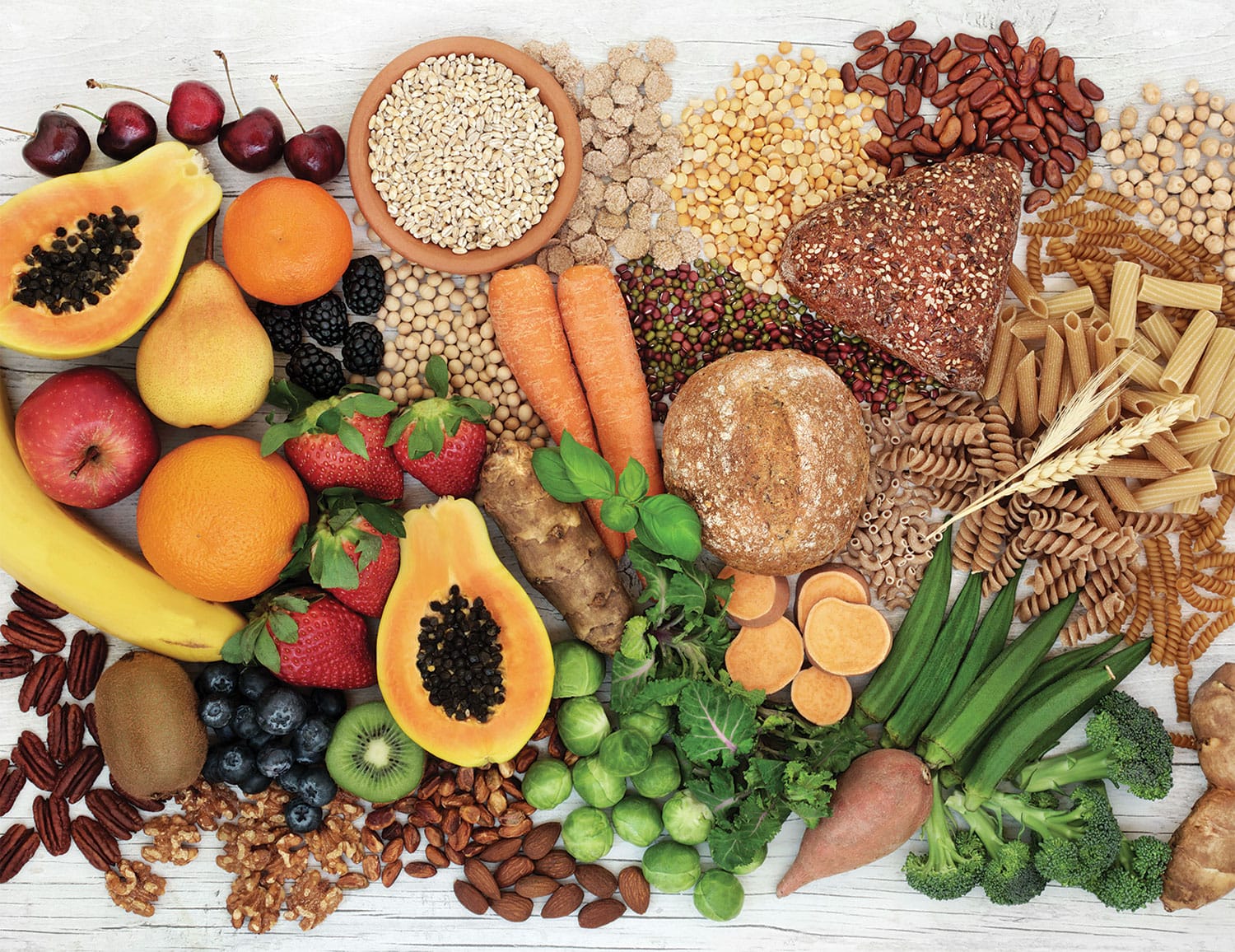RESEARCH HAS SHOWN THAT A DIET HIGH IN FIBER may cut colorectal cancer risk. A study published in January 2018 in JAMA Oncology is the first to examine whether greater fiber intake also benefits people who have already been diagnosed with colorectal cancer.
Researchers obtained health records of 1,575 people with nonmetastatic colo-rectal cancer. They calculated daily fiber intake before and after diagnosis from questionnaires asking how frequently participants ate foods containing fiber, including fruits, vegetables and whole grains.
The researchers found that people who increased their fiber intake via cereals and whole grains after a colorectal cancer diagnosis had a lower death rate than people who didn’t. Each 5-gram increase in daily fiber (about the amount of fiber in one medium-sized pear) predicted an 18 percent lower risk of dying from colorectal cancer up to four years after diagnosis.
Five High-Fiber Fruits
Most fresh fruit has a high water content. This can aid digestion, a plus if you are trying to increase your fiber intake but are struggling with digestive discomfort, says Alice Bender, director of nutrition programs at the American Institute for Cancer Research.
1 cup of raspberries = 9 grams of fiber
1 cup of blackberries = 7 grams of fiber
1 mango = 5.4 grams of fiber
½ avocado = 5 grams of fiber
1 medium apple = 4.4 grams of fiber
Researchers hypothesize that fiber may help improve insulin sensitivity and reduce inflammation. Insulin resistance and high levels of inflammation often accompany colorectal cancer and are associated with worse outcomes.
“I think it’s really encouraging that we are learning [that] lifestyle choices after colorectal cancer diagnosis—along with recommended therapies—could have substantial impacts on outcome,” says Andrew Chan, a gastroenterologist at Massachusetts General Hospital in Boston and senior study author.
Most U.S. adults consume far less fiber than is suggested, with only about half reaching recommended daily amounts (roughly 25 grams per day for women, 30 grams per day for men). Chan suggests that all adults try to hit these levels by eating a diet rich in vegetables, fruits and whole grains. If you have difficulty with high-fiber foods, consider trying a range of sources of fiber, including supplements, he
Cancer Today magazine is free to cancer patients, survivors and caregivers who live in the U.S. Subscribe here to receive four issues per year.





